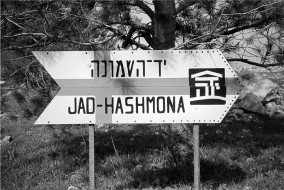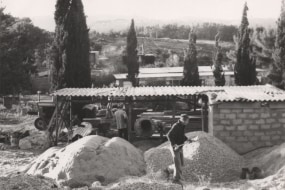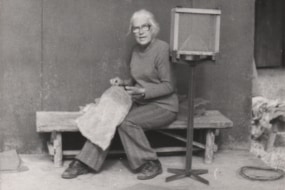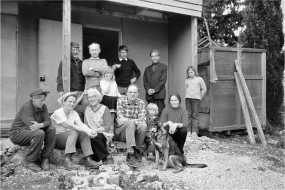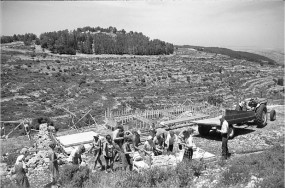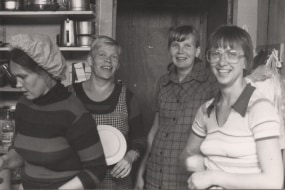Who We Are
History of the Moshav
Groups of volunteers from Finland began to come to the different Kibbutzim in Israel under the connections and activity of “Karmel organization”.
They worked primarily in agriculture, in orange groves, on dairy farms, and lived together with the Israelis in the kibbutzes they were volunteering in, eating in the communal dining rooms and exploring the land. Their purpose was to take part in helping the returning Jewish people from around the world build up their recently re-established land.
A small group of volunteers from Finland felt called to establish a kibbutz of their own in Israel. In 1971 the cooperative was created with the purpose of being a living example of God’s love to His people and their land.
Under miraculous circumstances, and against all odds, they received personal permission from Golda Meir, who was the Prime Minister of Israel at the time, to establish their own community in a small, abandoned military outpost in the Judean Hill country. In 1974, the group finally settled at the location after 3 difficult years of obtaining all the required permits needed to establish the community.
With no external resources, they began to build the place. They sold all their possessions in Finland and brought the money to be used in the funding of building the new community. It was established as a “Moshav Shitufi” (communal village), rather than a Kibbutz because the Kibbutz organization of Israel did not know what to do with this “strange non-Israeli foreign group” who wanted to join them.
Soon after, young Hebrew-speaking Messianic Jewish families became a part of the Moshav with the vision to settle the land, and with the faith that God would do something special through this place. Together, Jews and Gentiles, as members of Yad Hashmona, they worked and toiled to build up this place, sharing all income and assets for the purpose of establishing a village of believers in Yeshua.
Context of Believers in Israel
Believers in Israel range from 20-30 thousand. They are considered a minority people group living within a Jewish state. While they themselves are Jewish and hold to Jewish customs and traditions, some of them are not fully recognized by the State of Israel and especially by certain more fanatic religious segments of Israeli society. However, they are full citizens of the Israeli state and as Israelis contribute with the same pioneering attitude and fervour as the country’s earliest Jewish pioneers who settled the land.
